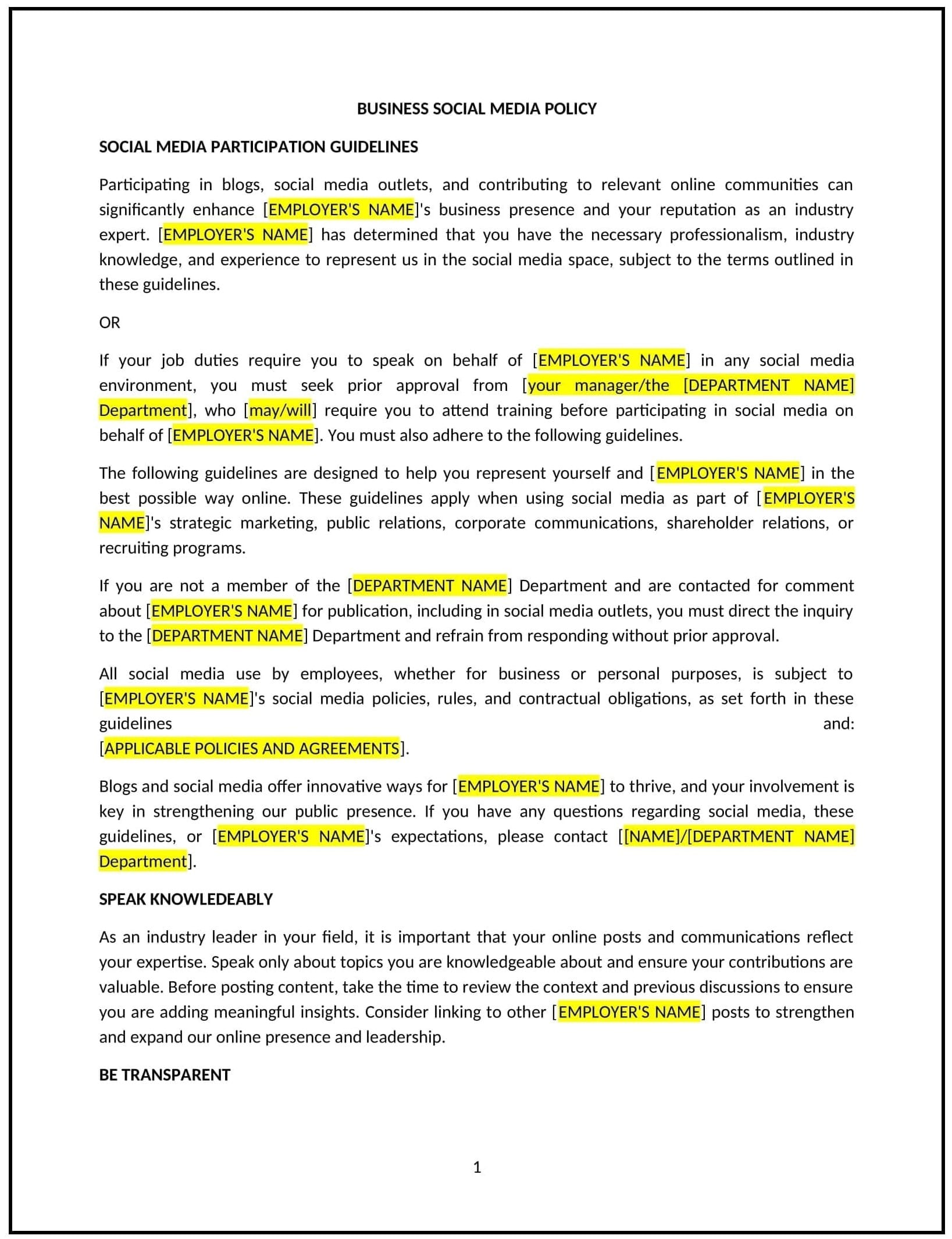Business social media policy (Rhode Island): Free template
Got contracts to review? While you're here for policies, let Cobrief make contract review effortless—start your free review now.

Customize this template for free
Business social media policy (Rhode Island)
This business social media policy is designed to help Rhode Island businesses establish guidelines for employees using social media in both professional and personal capacities. It outlines procedures for maintaining professionalism, protecting confidential information, and ensuring compliance with company standards.
By adopting this policy, businesses can protect their reputation, reduce risks, and align with general best practices for social media use.
How to use this business social media policy (Rhode Island)
- Define social media use: Explain what constitutes social media use, including platforms like Facebook, Twitter, LinkedIn, and Instagram.
- Establish professional use guidelines: Provide rules for employees using social media on behalf of the business, such as posting content or engaging with customers.
- Address personal use: Outline expectations for employees’ personal social media use, including avoiding conflicts of interest and protecting confidential information.
- Set confidentiality requirements: Specify how employees should handle sensitive or proprietary information on social media.
- Train employees: Educate staff on their responsibilities for adhering to the policy and maintaining professionalism online.
- Review and update: Assess the policy annually to ensure it aligns with evolving business needs and social media trends.
Benefits of using this business social media policy (Rhode Island)
This policy offers several advantages for Rhode Island businesses:
- Protects reputation: Ensures that social media use reflects positively on the business and avoids damaging posts.
- Reduces risks: Minimizes the potential for legal disputes, data breaches, or reputational harm related to social media use.
- Aligns with best practices: Provides a structured approach to managing social media use in the workplace.
- Builds trust: Demonstrates a commitment to professionalism and transparency in online interactions.
- Enhances brand image: Ensures consistent and positive representation of the business on social media platforms.
Tips for using this business social media policy (Rhode Island)
- Communicate the policy: Share the policy with employees and include it in the employee handbook.
- Provide training: Educate staff on their responsibilities for adhering to the policy and maintaining professionalism online.
- Monitor adherence: Regularly review social media activity to ensure compliance with the policy.
- Address issues promptly: Take corrective action if social media use violates the policy or harms the business’s reputation.
- Update regularly: Assess the policy annually to ensure it aligns with evolving business needs and social media trends.